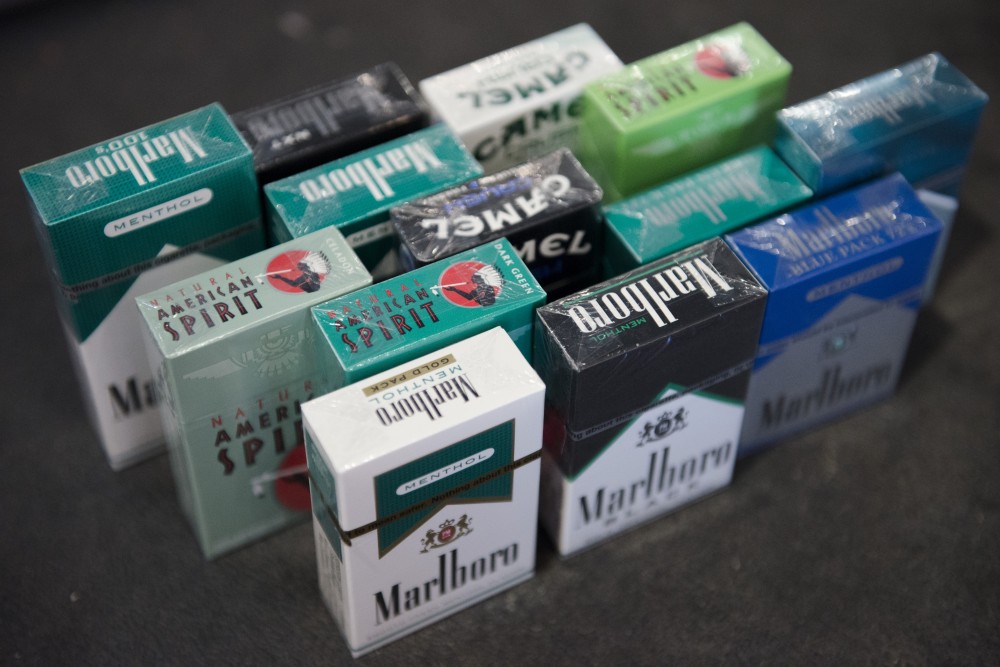Two years after banning flavored tobacco from corner stores, the Minneapolis City Council is ready to swipe mint flavors from the aisles as well.
Ward 2 Council Member Cam Gordon and Ward 10 Council Member Lisa Bender introduced a proposal on Friday to add menthol or mint flavored tobacco to the existing blacklist that keeps other child-enticing flavors, like bubblegum and cherry, off convenience store shelves.
Twin Cities activists have been working to take down menthol for years but the flavor’s popularity and big tobacco’s affinity for it has made progress difficult, said Betsy Brock, research director for the Association of Nonsmokers–Minnesota.
The association teamed up with Minneapolis’ Northpoint Health and Wellness Center to conduct research, education and outreach initiatives to get the policy to city council, Brock said.
The agencies found menthol products are disproportionately used by youth, black and LGBT communities, said LaTrisha Vetaw, policy manager for Northpoint. Nearly 80 percent of black smokers use menthols.
“You make a community believe this is your choice of tobacco poisoning,” Vetaw said.
Brock said a common misconception with menthol cigarettes is that they’re healthier than regular tobacco. This contributes to its immense popularity and apparent immunity to regulation, she said.
When the Food and Drug Administration outlawed flavored cigarettes in 2009, it exempted mint.
It’s no surprise, Brock said, that Minneapolis’ 2015 flavored tobacco ordinance — which contained flavored tobacco to tobacco stores — made the same distinction.
“At that time, we were not ready to include menthol [in the ordinance],” said Gretchen Musicant, Minneapolis Health Department commissioner. “None of the groundwork had been done.”
While the Association of Nonsmokers–Minnesota and Northpoint have now done that groundwork, Brock doesn’t expect the ordinance process will come easy.
When the council worked on the flavor ordinance in 2015, various store owners testified against it, and the convenience store Holiday even hired a lobbyist to oppose the ordinance, she said.
Now, ANSR is worried those invested in keeping menthol in stores will make similar moves. Such worries may be well-founded, as local and national tobacco supporters have started to bristle.
Tom Briant, executive director of the National Association of Tobacco Outlets, said the association is already working with local convenience stores and gas stations to resist the ban.
Some owners will start hanging protest banners at their stores next week, Briant said, and are stocking up on fliers to raise awareness of the financial impact the ordinance could have.
“If enacted, this ordinance would cost Minneapolis retailers approximately 73 million dollars per year in sales,” Briant said. “In the average convenience store business model, 36 percent of all sales is in tobacco.”
Richard Bohnen, owner of two Minneapolis gas stations, said paired with a heightened minimum wage, a menthol ban would devastate his stores.
If the ordinance passes, Bohnen said he won’t bother renewing the tobacco license for at least one of his stores.
In addition to straining business, Briant said the ban could also have a negative effect on the Minneapolis community, as menthol consumers might be pushed to buy their product from unlicensed sources.
“This will create conditions for criminal elements to come into Minneapolis and sell tobacco,” Briant said. “And ironically, that makes it easier for underage youth to get [tobacco].”
Although Bohnen said he plans to continue basing his stores in Minneapolis for the time being, he’s scouting for locations out of the city.
“I’m looking for opportunity out there,” he said. “As far as what I do, they don’t want me here.”











